The recently concluded 112th Session of the International Labour Conference (ILC) reiterated ILO constituents’ strong demand for international statistical standards for care work measurement, calling for:
“the development of internationally-agreed statistical standards as the basis for the collection of detailed, comparable and harmonized data on the care economy, taking into account all relevant unpaid and paid care work, for discussion at the 22nd International Conference of Labour Statisticians in 2028” (ILC.112/resolution III, pages 6-7, para 5c)
The support expressed in the ILC resolution builds on the mandate received from the 21st International Conference of Labour Statisticians (ICLS) in October 2023, directing the ILO to launch a statistical standards setting process on the topic of care work statistics – and is further evidence of the intensifying demand for more and better data on care work and the care economy.
Growing demand for international statistical standards for the measurement of care work
Care work – whether paid or unpaid, formal or informal – is essential to individual well-being and to the functioning and flourishing of societies and economies everywhere. However, it is often under-counted and under-valued, not least in official statistics.
In recent years, care work has come to occupy an increasingly prominent place in national policy agendas, as countries seek to respond to challenges arising from accelerating demographic shifts and continue to grapple with persistent gender-based inequalities in labour market participation and access to decent work – inequalities highlighted and exacerbated by the COVID-19 pandemic.
In tandem with greater awareness of the importance of a well-functioning care economy for broader economic and societal goals, demand for statistics on care work – capable of providing a strong evidence base for policy development and monitoring – has intensified in recent years.
The growing demand for care work statistics has exposed a number of important gaps and limitations. At the conceptual and methodological levels, the absence of internationally agreed statistical standards and allied measurement frameworks has undermined efforts to classify and measure care work in a comprehensive and meaningful way. As a result, a wide variety of practices can be observed among countries, international agencies, non-governmental organisations, and academic researchers. This has limited the international comparability of data, and the utility of data for monitoring change over time.
At the empirical level, there are important gaps in the availability and usability of data. Care work cuts across different forms of paid and unpaid work and is undertaken in a wide variety of economic units (including private homes, communities, and market- and non-market enterprises). Forms of work include employment, own-use production work (sub-divided into “own-use production of goods” and “own-use provision of services” – or unpaid domestic and care work), unpaid trainee work, volunteer work, and other unpaid work.
As a result, compiling comprehensive data on care work often requires a combination of different measurement sources (usually labour force surveys and time-use surveys), with different methodologies, target populations, reference periods, sample characteristics, and classificatory schemes.
As efforts to measure, map, and monitor care work have proliferated and intensified, the need for a consistent definition of care work, capable of retaining meaning and analytical coherence when applied to different situations, contexts, and settings has become increasingly evident.
Towards harmonised measurement of care work
While important points of difference and non-trivial challenges remain, the broad conceptual contours of care work have, in recent years, been subject to a growing consensus. Historically, the ILO has been at the forefront of efforts to spotlight and mainstream care work and the care economy.
The ILO’s Care work and care jobs for the future of decent work report (published in 2018) sets out a comprehensive and holistic understanding of care work. As defined in that report, care work encompasses a wide range of “activities and relations involved in meeting the physical, psychological, and emotional needs of adults and children, old and young.”
This understanding entails an expansive approach to care work, whereby care needs are acknowledged to exist across the life course: “New-borns and young people…adults…[and]…older persons [all] have physical, psychological, cognitive and emotional needs and require varying degrees of protection, care, or support.”
Box one: Demand for harmonisation of care work measurement
Resolution V of the 112th ICLS formulates the care economy as follows:
“Paid care work spans diverse occupations and sectors…There is currently no internationally agreed statistical definition of care work and such a definition should be developed to promote harmonization and consistency of data on care, including in all applicable sub-sectors…The care economy, spanning formality and informality, includes, but may not be limited to, the activities of workers in education, early childhood care and education, and the health and social sectors, of domestic workers, and of individuals who perform unpaid care work” (ILC.112/resolution III, page 3, para 10)
While the broad contours of care work are increasingly widely accepted, certain considerations continue to complicate the delineation of care work, the boundaries between care work and non-care work, and the applicability of concepts, definitions, and terminology across different forms of work and economic units, with important implications for production of statistics. Box two summarises selected priority areas for the statistical standard-setting process.
Box two: Priority areas for the standard-setting process
Conceptual considerations for standard setting
- Defining the boundaries of care work performed as different forms of work (and subsets thereof), with reference to relevant international classification scheme(s)
- Defining meaningful sub-categories of unpaid and paid care work performed as different forms of work, in line with existing international standards (e.g., differentiated by economic unit) and user needs (e.g., separate identification of “long-term care”)
- Defining appropriate terminology for care work performed within different forms of work and for those persons performing it.
Measurement considerations for standard setting
- Defining measurement criteria for the concept of care work performed within different forms of work.
- Developing indicator frameworks
- Defining sub-groups for disaggregation at activity, unit, geographical, and person level, in line with national context and taking account of the statistical precision of the estimates
Data availability
- Mapping the extent to which existing – and forthcoming – data sources (primarily labour force surveys and time-use surveys) are compatible with the concept of care work performed within different forms of work
The topic of care work is highly integrated with existing ICLS standards and classification schemes, and other areas of work led by the ILO (including the release of new guidance and tools to support the measurement of unpaid domestic and care work in national labour force surveys). Ongoing work, coordinated by the ILO, to update of the International Standard Classification of Occupations (ISCO-08), can inform, and be informed by, the development of statistical standards for care work. Additional international classification schemes, including the International Standard Industrial Classification of All Economic Activities (ISIC) and the International Classification of Activities for Time-Use Statistics (ICATUS) provide further important inputs.
The ILO’s programme of work to develop international statistical standards, definitions, and an allied measurement framework for care work has emerged at a pivotal moment, amidst unprecedented interest in the topic of care work and care economy at international, regional, and national levels.
Following an initial round of scoping work, a Working Group of Experts, representing ILO constituents, will be assembled to support the statistical standard setting process. This process will advance through the exchange of national experiences, practices, measurement objectives, and policy priorities. The resulting harmonised recommendations will be presented for discussion and adoption at the 22nd ICLS.
Recognising that new standards are necessary but not sufficient, the ILO is engaged in parallel work to support countries to measure paid and unpaid care work through labour force surveys aligned to existing statistical standards, as contained in the 19th, 20th, and 21st ICLS. The motivation for this work is to provide interim statistics on key dimensions of care work, to ensure that the forthcoming statistical framework and related guidance reflect practical and evidence-based approaches, and to prepare the groundwork for timely and sustainable implementation of the standards once adopted.
Author
-

Samantha Watson
Samantha is a senior statistician in the ILO Department of Statistics’ Statistical Standards and Methods Unit.
View all posts
